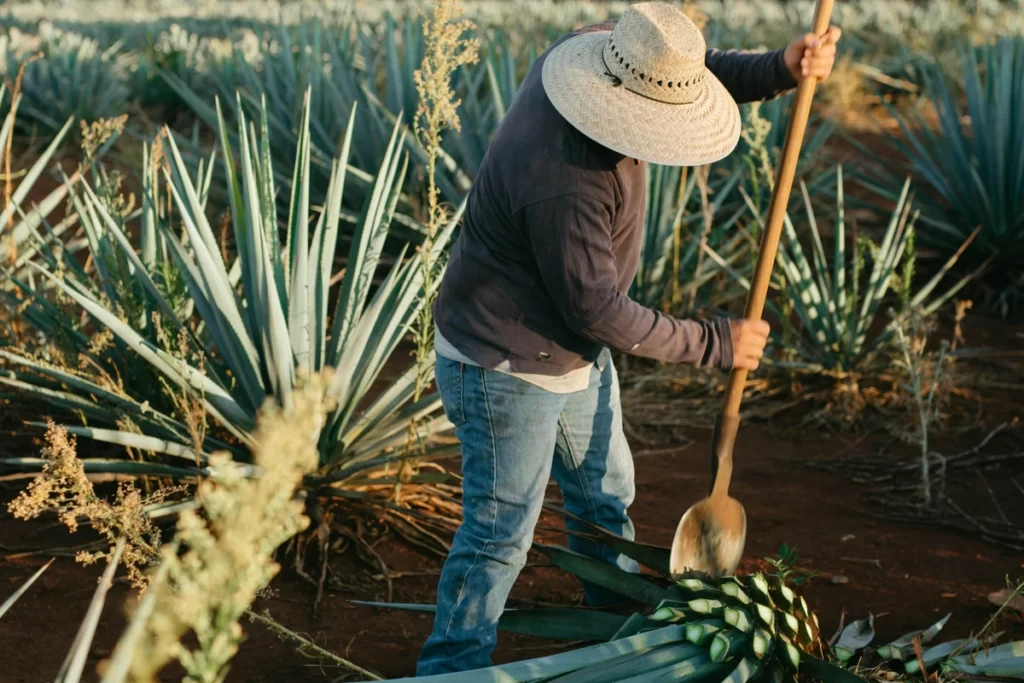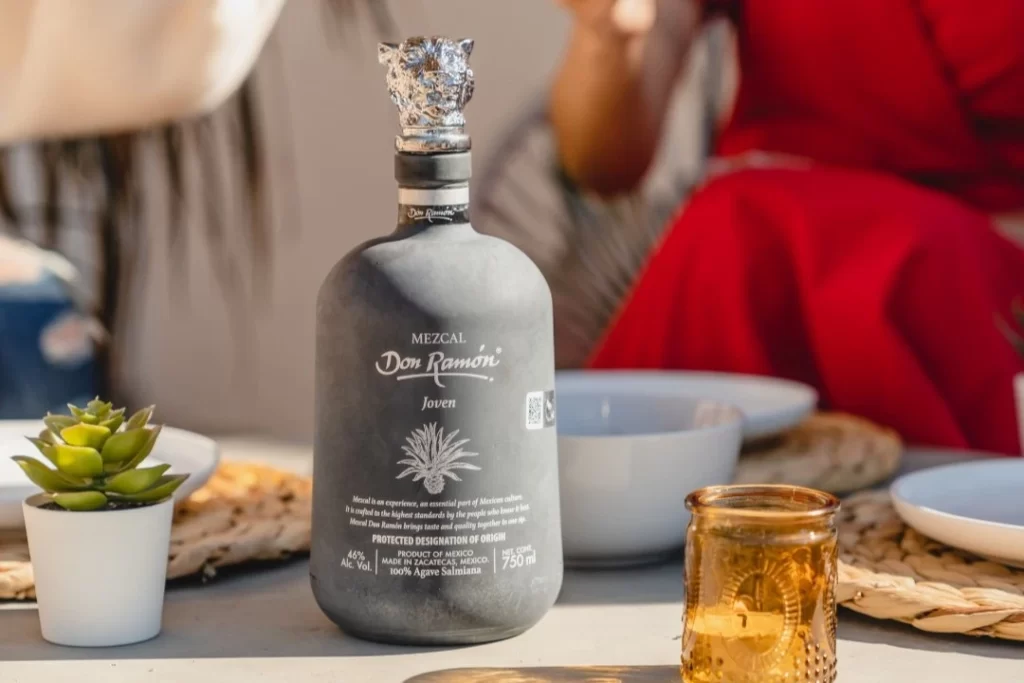Do you know what mezcal is? Often seen as a cousin of tequila, it is a true treasure of the Mexican alcoholic tradition. With its unique taste and rich history, this Mexican alcohol is gaining popularity around the world. In this article, we’ll take a look at what exactly mezcal is, the varieties of agave from which it is made, and how it differs from its more famous relative – tequila.
What mezcal is?
Mezcal is a distillate with a rich and complex history, deeply rooted in Mexican tradition. Its production is based on agave, but unlike tequila, mezcal can be made from more than 30 different species of this plant. It is the diversity of agave that makes mezcal stand out for its unique spectrum of flavors and aromas. The production process of mezcal is carried out carefully and by hand, starting with the roasting of agave hearts in earthen ovens, through fermentation and distillation. This method gives mezcal its characteristic smoky aftertaste and depth of flavor.
The variety of agave species and regional processing methods make each mezcal unique. It can range from delicate and subtle to intense and rich in flavor, making it an extremely diverse and surprising drink. In this diversity lies the secret of mezcal, which becomes not just a drink, but a true reflection of Mexico’s rich culture and history.
History and tradition
The history of mezcal goes deep into Mexico’s past, and its roots can be traced back as far as pre-Columbian times. Originally produced by the indigenous people of Mexico, mezcal has long been part of religious rituals and daily life. Considered a gift from the gods, mezcal had spiritual significance, which distinguished it from other alcoholic beverages.
Over the centuries, mezcal production techniques have evolved, but have always remained true to traditional methods. Roasting agave in earth ovens, hand-crushing, or natural fermentation are all elements that have survived to this day and are key to achieving the authentic taste and character of mezcal. Each region of Mexico has developed its own unique approach to its production, resulting in countless local varieties, each with its own distinctive flavor profile.
This rich history and adherence to tradition has not only contributed to mezcal’s growing popularity around the world, but has also made it a symbol of Mexican culture and heritage. Today’s mezcal, although made with modern technology, still pays homage to its roots, retaining the unique character and soul that have defined its identity for centuries.

Mezcal – production process
The process of producing mezcals, such as Mezcal Don Ramón, begins with carefully selected agave varieties that mature for eight to ten years. Once fully mature, the agave hearts, called piñas, are hand-picked and roasted in earthen ovens. This traditional roasting method gives mezcal its distinctive smoky flavor and is crucial to the final flavor profile. Roasting usually takes several days and is a process that requires great precision.
After roasting, the agaves are crushed, often using a traditional stone mill, to extract the juice. The juice then ferments, which can take from a few days to several weeks, depending on the climatic conditions and the agave used. The final stage is distillation, usually in copper alembics, which allows precise separation of the alcohol and produces a clear, intense mezcal. Each of these stages is steeped in tradition and contributes to the unique character of each batch of this liquor.
Different varieties of agave
The diversity of mezcal is largely due to the use of different agave varieties. Each gives mezcal its unique flavor and aromatic characteristics. The most popular agave varieties used in mezcal production are Espadin and Salmiana, but there are many other, lesser-known varieties that are also prized for their unique qualities.
Espadin agave is most commonly used for mezcal production due to its availability and relatively short ripening period. Among others, this type of agave is used to make Mezcal Don Ramón 100% Maguey Espadin Joven. It is characterized by a mild, sweet flavor with subtle notes of fruit. Salmiana agave, on the other hand, as in the case of Mezcal Don Ramón 100% Agave Salmiana Joven gives the mezcal a more complex, intense flavor with distinct notes of earth and wild herbs.
These differences in agave varieties make it possible to create a wide range of mezcals, from mild and delicate to intense and full-flavored. As a result, there is something for every mezcal lover, discovering the richness of flavors that this traditional Mexican drink offers. The choice of agave influences not only the taste and aroma of mezcal, but also its culture and history, highlighting regional diversity and production traditions.

Mezcal vs tequila – key differences
Although mezcal and tequila are often combined due to a common raw material, there are significant differences in their production, taste and character. The key difference lies in the type of agave: tequila is made exclusively from blue agave, while more than 30 different species of agave, including the popular Espadin, can be used to make mezcal.
Another important element that differentiates the two drinks is the production process. Mezcal is famous for its traditional roasting of agave hearts in earthen ovens, which gives it a distinctive smoky flavor. Tequila, on the other hand, is produced by cooking agave in closed ovens or autoclaves, which gives it a more mild and less smoky profile. This difference in the thermal treatment method of agave is key to distinguishing the two drinks.
While tequila is often associated with quick drinks and cocktails, mezcal has gained a reputation as more of a tasting drink, appreciated for its complexity and depth of flavor. Mezcal offers a rich array of flavors and aromas, from fruity and sweet to earthy and spicy, making it more diverse compared to tequila. These differences underscore mezcal’s uniqueness as a drink that invites you to quietly savor each sip, discovering the richness of flavors it offers.
Mexican tradition
During our journey through the world of mezcal, we discovered how this unique drink stands out from other distillates, offering an extraordinary variety of flavors and aromas. Mezcal is a drink that deserves attention and appreciation. Its depth and complexity mean that each bottle tells the story of its region, traditions and the people who created it.
Mezcal isn’t just a liquor – it’s a culture, history and the art of distillation that has evolved over the centuries. Whether you’re already a mezcal aficionado or just beginning your adventure with this Mexican treasure, we invite you to explore its rich flavors and aromas.

